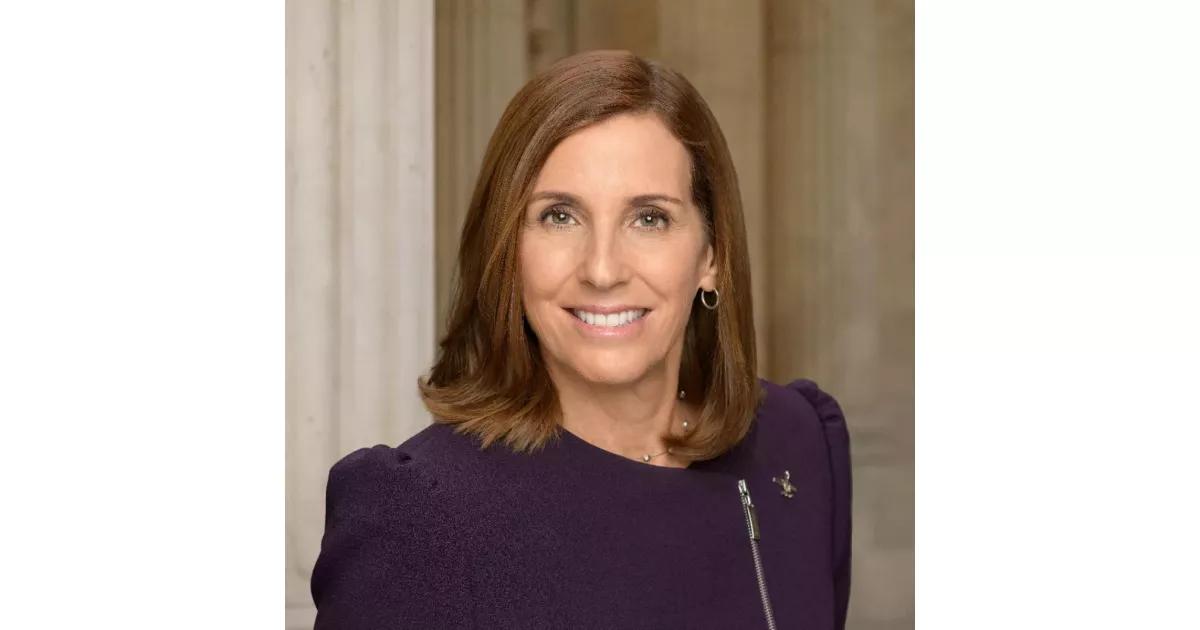Martha McSally is a former American politician and military pilot. She served Arizona in both the U.S. House of Representatives and the U.S. Senate. She began her career as an A-10 pilot in the U.S. Air Force, serving from 1988 to 2010. In 2004, she sued the Department of Defense over its policy that required female military personnel stationed in Saudi Arabia to wear abayas off base, and in 2001 she became the first American woman to fly in combat after the prohibition was lifted on women in combat following the Persian Gulf War, and later she commanded the 354th Fighter Squadron between 2004 and 2005. She retired from the Air Force in 2010 at the rank of Colonel. In 2012, she unsuccessfully ran for the U.S. House of Representatives in Arizona's 2nd congressional district. Two years later, she successfully ran for and won the House seat in Arizona's second congressional district and served between 2015 and 2019. After losing reelection in 2018, she was appointed to the U.S. Senate to fill the vacancy caused by the death of John McCain, but she was then was appointed to fill the other Senate seat vacated by Jon Kyl's retirement. She served between 2019 and 2020, losing reelection to Mark Kelly. To date she is the last Republican to serve Arizona in the Senate.
1931: Davis-Bacon Act Enacted
The Davis-Bacon Act, requiring payment of prevailing local wages on public works projects, was enacted in 1931.
March 22, 1966: Birth of Martha McSally
Martha McSally was born on March 22, 1966.
1966: Birth and Family Life
Martha McSally was born in 1966 and was the youngest of five children. Her father died when she was twelve.
1984: High School Graduation
Martha McSally graduated as valedictorian from St. Mary Academy - Bay View in 1984.
1988: Air Force Academy Graduation
Martha McSally graduated from the United States Air Force Academy with a B.S. in Biology in 1988.
1988: Air Force Career Begins
Martha McSally's career in the United States Air Force began in 1988.
1989: Campaign Finance related to Gun Rights Groups
The timeframe for receiving funds from gun rights groups began in 1989.
1991: Earns Pilot's Wings
Martha McSally earned her USAF pilot's wings in 1991 after completing training at Williams Air Force Base.
1993: Lead-in Fighter Training
Martha McSally completed Lead-in Fighter Training in 1993.
January 1995: First Combat Patrols
In January 1995, Martha McSally flew combat patrols over Iraq in support of Operation Southern Watch, becoming the first female U.S. fighter pilot to fly in combat.
1997: Marriage to Donald Frederick Henry
McSally married Air Force officer Donald Frederick Henry in 1997.
1999: Deployment to Europe and Legislative Fellowship
In 1999, Martha McSally deployed to Europe for Operation Allied Force and was selected for the Legislative Fellowship Program, working as a national security advisor to Senator Jon Kyl.
1999: Annulment of Marriage
McSally's marriage to Donald Frederick Henry was annulled in 1999.
2001: McSally v. Rumsfeld
In 2001, Martha McSally sued the Department of Defense, challenging the policy requiring servicewomen to wear abayas in Saudi Arabia.
January 20, 2002: 60 Minutes Interview
On January 20, 2002, Martha McSally described her experience with the abaya policy in a 60 Minutes interview.
2002: Congressional Legislation on Abayas
In 2002, Congress passed legislation prohibiting the requirement or encouragement of abayas for servicewomen in Saudi Arabia.
2002: Abaya Policy Change
In 2002, General Tommy Franks announced that servicewomen would no longer be required to wear abayas in Saudi Arabia.
July 2004: Command of 354th Fighter Squadron
In July 2004, Martha McSally took command of the 354th Fighter Squadron at Davis-Monthan Air Force Base.
2006: David C. Shilling Award
In 2006, Martha McSally's squadron won the David C. Shilling Award.
May 6, 2010: Retirement and Professorship
After retiring from the Air Force on May 6, 2010, Martha McSally worked as a professor at the George C. Marshall European Center for Security Studies.
2010: Position on Employment Non-Discrimination Act
During her 2010 campaign, McSally indicated opposition to the Employment Non-Discrimination Act (ENDA).
2010: Retirement from Air Force
Martha McSally retired from the United States Air Force in 2010.
February 9, 2012: Candidacy Announcement
On February 9, 2012, Martha McSally announced her candidacy for the special election for Arizona's 8th congressional district.
November 2012: Congressional Election
In November 2012, Martha McSally ran against Ron Barber and Anthony Powell in the election for Arizona's 2nd congressional district.
2012: McSally's Stance on Federal Involvement in Education
In 2012, McSally expressed her desire for the federal government to withdraw from involvement in education.
2012: McSally's Opposition to Gun Control Measures
In 2012, McSally stated her opposition to restrictions on gun sales, considering them unconstitutional.
2012: First Run for U.S. House
Martha McSally first ran for the U.S. House of Representatives in 2012 but was unsuccessful.
November 12, 2014: McSally Declares Victory in Close House Race
On November 12, 2014, Martha McSally declared victory in the Arizona's 2nd congressional district race after a close election. A recount was later triggered due to the small margin.
December 2014: Criticism of Obama's Immigration Actions
In December 2014, McSally criticized Obama's executive actions on DACA and DAPA.
2014: Elected to the House
Martha McSally was elected to the U.S. House of Representatives in 2014.
January 2015: Vote on DACA Amendment
In January 2015, McSally voted against an amendment to end DACA.
2015: McSally Votes for 20-Week Abortion Ban
In 2015, McSally voted in favor of a 20-week abortion ban, largely aligning with other Republicans.
2015: Beginning of Congressional Service
Martha McSally began her service in the U.S. Congress in 2015.
2015: Start of House Service
Martha McSally's service in the U.S. House of Representatives began in 2015.
2015: Population Connection Gives McSally 25% Grade
Population Connection, a pro-abortion rights and family planning group, gave Martha McSally a grade of 25% in 2015.
May 2016: Vote Against Obama's Non-Discrimination Action
In May 2016, McSally voted against maintaining an Obama administration action prohibiting discrimination against government contractors based on sexual orientation.
2016: McSally's Legislative Success in the House
By 2016, during her first term, Martha McSally achieved significant legislative success, with seven of her bills being approved by the House, focusing on homeland security and veterans' issues.
2016: McSally's Liberal Ratings
In 2016, Martha McSally received a 23% rating from the American Civil Liberties Union and a 5% score from Americans for Democratic Action.
2016: McSally Reelected to the House
In 2016, Martha McSally was reelected to the U.S. House of Representatives for Arizona's 2nd district, defeating her Democratic opponent.
2016: McSally's Initial Stance on Trump
In 2016, McSally did not endorse Trump for president and did not encourage or discourage her district's voters to support him. She criticized Trump's comments in the Access Hollywood tape as "disgusting" and "unacceptable."
2016: McSally Supports the Apache Solar Project
In 2016, McSally supported the Apache Solar Project.
2016: McSally's Hawkish Foreign Policy Stance
In 2016, McSally's foreign policy was described as "hawkish." She criticized the Iran nuclear deal, supported defense contractors, advocated for increased military spending, and opposed cuts to military spending.
2016: McSally's Ratings from Pro-Choice and Pro-Life Groups
In 2016, Planned Parenthood gave McSally a 12% rating and Population Connection gave her 33%. NARAL Pro-Choice America gave her a 7% rating.
January 2017: Response to Trump's Travel Ban
In January 2017, McSally expressed concerns about Trump's executive order suspending entry of foreigners from seven Muslim-majority countries.
January 2017: Vote on Affordable Care Act Repeal
In January 2017, McSally voted for a budget resolution to begin the process of repealing the Affordable Care Act.
February 2017: McSally Votes Against Request for Trump's Tax Returns
In February 2017, McSally voted against a resolution to request 10 years of Trump's tax returns for review by the House Ways and Means Committee.
March 2017: Co-Sponsorship of Broadband Consumer Privacy Proposal
In March 2017, McSally co-sponsored a bill that would allow internet providers to sell browsing history without consent.
March 2017: Support for American Health Care Act
McSally supported the March 2017 version of the American Health Care Act.
April 2017: Co-Sponsorship of DACA Bill
McSally co-sponsored a DACA bill in April 2017.
May 4, 2017: Vote to Repeal and Replace Affordable Care Act
On May 4, 2017, McSally voted to repeal the Affordable Care Act and replace it with a revised version of the American Health Care Act.
September 2017: Request for DACA Legislative Solution
In September 2017, McSally was one of ten Republicans who requested a legislative solution for DACA recipients.
October 2017: McSally Supports and Speaks at Apache Solar Project Dedication
In October 2017, after its completion, McSally delivered the keynote address at the Apache Solar Project dedication. She praised the project as a model for community-led renewable energy initiatives.
December 2017: Opposition to Net Neutrality
In December 2017, McSally urged the FCC to repeal net neutrality rules.
2017: McSally's Support for Tax Cuts and Jobs Act
In 2017, Martha McSally voted in favor of the Tax Cuts and Jobs Act, dismissing negative polls as "hysteria" and "misinformation." She anticipated public approval once people saw increased pay.
2017: Vote to Repeal Affordable Care Act
In 2017, Martha McSally voted to repeal the Affordable Care Act.
2017: Population Connection Gives McSally 0% Grade
In 2017, Population Connection gave McSally a 0% rating.
January 12, 2018: McSally Announces Senate Candidacy
On January 12, 2018, Martha McSally announced her candidacy for the U.S. Senate seat being vacated by Jeff Flake, marking a shift to the right in her political stance.
April 2018: Allegation of Abuse
In April 2018, Martha McSally publicly alleged that she was pressured into a sexual relationship with her track and field coach during high school.
April 2018: Tucson Man Sentenced for Threats
In April 2018, a Tucson man was sentenced to prison for threatening McSally.
May 2018: Shift in DACA Support
In May 2018, McSally withdrew her support for a DACA bill she previously co-sponsored.
June 2018: Removal of DACA Video
In June 2018, the McSally campaign removed a video from her website where she praised DACA.
July 2018: McSally on Trump's Actions Against Russian Aggression
In July 2018, McSally acknowledged Trump's actions to counter Russian aggression, but implied his rhetoric didn't match his deeds.
August 2018: McSally and Ward Dismiss Trump Character Concerns
During an August 2018 candidate forum, McSally and her primary opponent Kelli Ward downplayed concerns about Donald Trump's character, criticizing the media's focus on it.
August 25, 2018: McCain's Death Triggers Special Election
The death of Senator John McCain on August 25, 2018, led to a special election in November 2020 for his Senate seat.
December 18, 2018: McSally Appointed to Senate
On December 18, 2018, Governor Doug Ducey appointed Martha McSally to the U.S. Senate seat vacated by Jon Kyl.
2018: McSally Aligns with Trump
During her 2018 Senate campaign, McSally repositioned herself as an ally of President Trump and a dependable Republican vote.
2018: Shift on DACA
In 2018, Martha McSally changed her position on the Deferred Action for Childhood Arrivals (DACA) program.
2018: Senate Election Loss, Senate Appointment
In 2018, Martha McSally lost the Arizona Senate election to Kyrsten Sinema but was later appointed to the Senate to replace Jon Kyl.
2018: McSally's Conservative Ratings
In 2018, Martha McSally received varying ratings from different organizations. The American Conservative Union gave her a lifetime 75% rating and a yearly rating of 84%. Americans for Prosperity gave her 87%, while Conservative Review gave her 37% and Heritage Action 59%.
2018: McSally's Stance on Abortion and Planned Parenthood
In 2018, McSally reiterated her anti-abortion stance, opposing abortions except in cases of rape, incest, or to save the mother's life. She voted to defund Planned Parenthood while opposing a government shutdown over the issue.
2018: Disclosure of Childhood Sexual Abuse
In 2018, McSally revealed that she was sexually abused in high school.
2018: Stance on Same-Sex Marriage
In 2018, McSally stated her belief that marriage is between one man and one woman.
2018: McSally's Pro-Life Ratings and Endorsement
In 2018, the National Right to Life Committee gave McSally an 87% pro-life rating. She was endorsed by Arizona Right to Life.
2018: Statement on Affordable Care Act
While running for Senate in 2018, McSally stated that a return to pre-Obamacare healthcare policies was not desirable.
January 3, 2019: McSally Sworn in as Senator
Martha McSally was sworn in as a U.S. Senator on January 3, 2019.
January 2019: McSally Votes to Prevent Lifting of Russian Sanctions
In January 2019, McSally voted to advance legislation aimed at preventing President Trump from lifting sanctions imposed on three Russian companies.
February 5, 2019: McSally Votes on Middle East Security Act
On February 5, 2019, McSally voted in favor of the Strengthening America's Security in the Middle East Act.
March 6, 2019: Public Disclosure of Sexual Assault
On March 6, 2019, McSally publicly disclosed that she was raped by a superior officer in the Air Force.
May 2019: McSally's Response to Alabama Abortion Law
In May 2019, McSally initially refrained from commenting on Alabama's near-total abortion ban, calling it a "state issue." She later clarified her opposition to the law due to its lack of exceptions for rape and incest.
October 2019: Advocacy for Community Health Center Funding
In October 2019, McSally advocated for the passage of the CHIME Act to continue funding community health centers.
December 2019: McSally's Position on Trump Impeachment Inquiry
In December 2019, during the impeachment inquiry against President Trump, McSally stated she was not convinced of the need for impeachment.
2019: Campaign Finance related to Gun Rights Groups
As of 2019, McSally had received $372,615 from gun rights groups.
2019: McSally's Stance on Paris Climate Accord and Environmental Rating
In 2019, McSally had not publicly stated her position on the US withdrawal from the Paris Climate Accord. She held a lifetime score of 6% from the League of Conservation Voters.
2019: Vote on Border Wall Emergency Declaration
In 2019, McSally voted against a resolution rejecting Trump's emergency declaration for a border wall.
2019: Congressional Testimony on Sexual Assault
In 2019, during a congressional hearing, McSally revealed she was raped by a superior officer in the Air Force.
2019: McSally's Shift on Gun Control Stance
In 2019, reports suggested a change in McSally's position on gun control, indicating a willingness to consider measures such as red flag laws, assault weapons bans, and stricter background checks.
2019: National Right to Life Committee Gives McSally 100% Pro-Life Rating
In 2019, the National Right to Life Committee gave McSally a 100% pro-life rating.
2019: End of House Service
Martha McSally's service in the U.S. House of Representatives ended in 2019.
January 16, 2020: McSally Clashes with CNN Reporter
On January 16, 2020, McSally called CNN reporter Manu Raju a "liberal hack," leading to a public exchange and subsequent merchandise featuring the remark.
February 2020: McSally Votes to Acquit Trump
In February 2020, McSally voted to acquit President Trump in his impeachment trial.
March 2020: McSally Cosponsors Bill to Repeal Davis-Bacon Act
In March 2020, McSally cosponsored legislation to repeal the Davis-Bacon Act of 1931, which mandates paying prevailing local wages on public works projects.
April 2, 2020: McSally Criticizes WHO and Faces Criticism for COVID-19 Response
On April 2, 2020, McSally called for the resignation of the WHO director general and faced criticism for her earlier comments downplaying the COVID-19 threat.
April 2020: McSally's Voting Alignment with Trump
As of April 2020, McSally's voting record showed approximately 95% alignment with President Trump.
May 2020: McSally's Stance on Coronavirus Relief Funding
In May 2020, Martha McSally expressed her unwillingness to commit to further coronavirus relief funding, criticizing the budget management of Democratic-led states and cities. A spokeswoman later clarified that these comments were not intended for public release.
November 2020: McSally Loses Senate Bid to Mark Kelly
In November 2020, Martha McSally lost the special election for the U.S. Senate seat to Mark Kelly.
2020: Senate Election Loss
In 2020, Martha McSally lost the special election for the U.S. Senate to Mark Kelly.
2020: McSally Votes to Acquit Trump in Impeachment Trial
In 2020, McSally voted against allowing new witnesses and documents in Trump's impeachment trial and voted to acquit him of all charges.
2020: End of Senate Service
Martha McSally's service in the U.S. Senate ended in 2020.
May 2021: McSally Campaign Funds Misappropriated
In May 2021, Anthony Barry, McSally's former deputy campaign manager, pleaded guilty to stealing $115,000 from her campaign funds.
November 10, 2023: Sexual Assault Allegation and Arrest
On November 10, 2023, McSally claimed she was sexually assaulted while jogging in Iowa. A suspect was later arrested.
November 2023: Sexual Assault and Arrest of Suspect
In November 2023, McSally reported being sexually assaulted while running, leading to the arrest of Dominic Henton.
2026: Impact Projection of American Health Care Act
A projection showed that the previous version of the AHCA could leave 24 million Americans uninsured by 2026.
Mentioned in this timeline

Donald John Trump is an American politician media personality and...
The Affordable Care Act ACA also known as Obamacare is...
Saudi Arabia officially the Kingdom of Saudi Arabia KSA is...

Coronaviruses are a family of RNA viruses affecting mammals and...
CNN Cable News Network is a multinational news organization founded...
Syria officially the Syrian Arab Republic is a West Asian...
Trending
7 months ago Prague dethroned as best place to live; David Lynch exhibition opens at DOX.

Eugenio Derbez is a highly successful Mexican actor and comedian renowned for his work in both Spanish and English language...

2 months ago Angela Bassett As Queen Ramonda Stuns At Vogue World 2025; Black Panther Tribute.

8 months ago Tesla Board Initiated CEO Search to Replace Elon Musk Amidst Leadership Concerns.

9 months ago Milo Manheim and Liz Gillies bond in Little Shop of Horrors, extend run.

1 month ago Alexander Skarsgård reminds Miriam Margolyes of their meeting; addresses sexuality question, states 'not really' gay.
Popular

Stranger Things created by the Duffer Brothers is a popular...

XXXTentacion born Jahseh Dwayne Ricardo Onfroy was a controversial yet...

Kelsey Grammer is an accomplished American actor producer and singer...

Candace Owens is an American conservative political commentator and author...

Bernie Sanders is a prominent American politician currently serving as...

Melania Trump a Slovenian-American former model has served as First...
